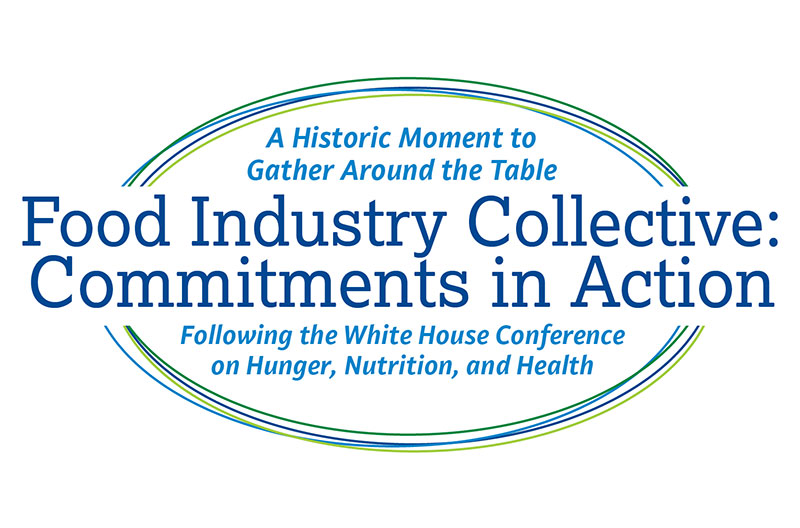FMI – The Food Industry Association and The Gerald J. and Dorothy R. Friedman School of Nutrition Science and Policy at Tufts University hosted a gathering of food and nutrition sector leaders Oct. 28.
The goal of the event was to forge solutions and spur collective action to support the historic White House National Strategy on Hunger, Nutrition and Health, which aims to end hunger, improve nutrition and reduce diet-related diseases by 2030.
The convening, “Food Industry Collective: Commitments in Action,” held in Washington, D.C. at the Smithsonian National Museum of American History, featured panel discussions with key U.S. food and nutrition sector leaders, hunger and nutrition advocates, health care professionals and scientists on the ways the industry can be innovative and ambitious to achieve these goals.
“Gathering around the table today with so many food and nutrition partners is a testament to our shared vision of providing all Americans with equitable access to healthy food to lower the likelihood of diet-related diseases like diabetes, obesity and hypertension,” said Leslie Sarasin, president and CEO and co-chair of the Bipartisan Policy Center’s Food and Nutrition Security Task Force.
Experts presented existing food sector commitments and opportunities and challenges for additional innovative solutions and actions that could be scaled for greater impact. This included consideration of new multi-sector collaborations and achievable outcomes via panel and small group discussions, strategies to formalize commitments and ways to work with the Biden Administration and Congress on the national goals in 2023.
In partnership with Sarasin, Dariush Mozaffarian, professor of nutrition at the Friedman School of Nutrition Science and Policy at Tufts University, provided opening remarks and presented on a panel around the role of investors in driving positive change. Mozaffarian also serves as a co-chair of the Task Force on Hunger, Nutrition and Health – a nongovernment, nonpartisan group of subject matter experts and multi-sector leaders that has worked to help inform the national strategy.
Mozaffarian emphasized the potential for this moment in time to inspire stakeholders in the food sector – farmers, manufacturers, retailers, restaurants, investors and wellness companies – to up their game to help advance the directives laid out in the national strategy.
“The White House Conference made clear that we are facing a national food crisis – harming our health, families, communities, economy, natural resources and national security,” Mozaffarian said. “I am hopeful that, with concerted attention, action and accountability, we can work together to create a healthier, more equitable and more sustainable food system for all.”
As The Food Industry Association, FMI works with and on behalf of the entire industry to advance a safer, healthier and more efficient consumer food supply chain. FMI brings together a wide range of members across the value chain – from retailers that sell to consumers, to producers that supply food and other products, as well as the wide variety of companies providing critical services – to amplify the collective work of the industry.

